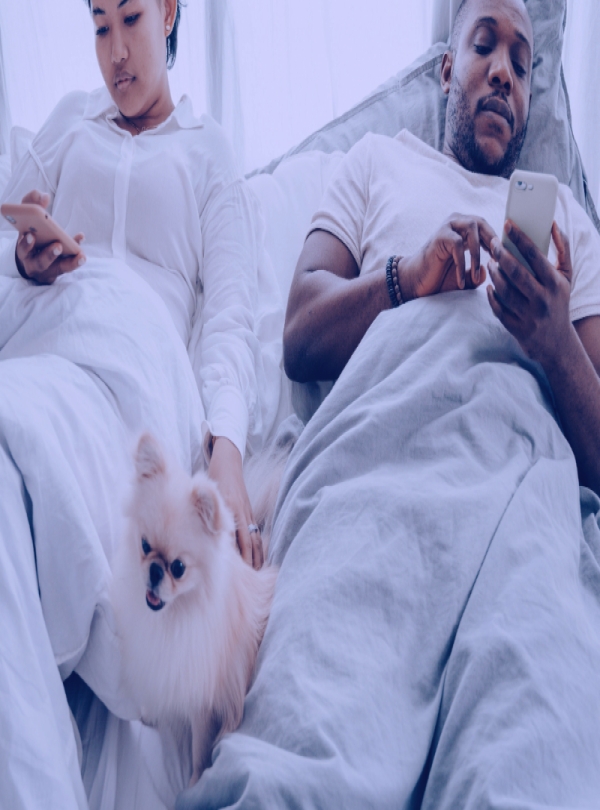Is Blue Light Affecting Your Wellbeing?
18/07/24
In today’s tech-driven world, we’re more connected than ever. However, this digital age comes with a downside: the blue light emitted by our devices. How does this affect your sleep and overall health? Let’s explore.
Understanding Blue Light
Blue light has a short wavelength and high energy. While it’s naturally found in sunlight, it’s also emitted by digital screens like computers, smartphones, and TVs. With our increased screen time, our exposure to blue light has surged.
How Blue Light Affects Sleep
Our bodies have an internal clock called the circadian rhythm, which regulates our sleep-wake cycle. Blue light exposure can disrupt this rhythm, making it harder to fall asleep. This happens because blue light suppresses melatonin, the hormone that controls sleep.
The Health Implications
Beyond sleep issues, prolonged blue light exposure can lead to other health problems. It may cause digital eye strain, resulting in dry eyes and headaches. In severe cases, it could contribute to age-related macular degeneration, a leading cause of vision loss.
Mitigating The Effects
Here are some ways to reduce blue light exposure:
- Adopt the 20-20-20 rule: Every 20 minutes, take a 20-second break and look at something 20 feet away to reduce eye strain.
- Use blue light filters: Many devices have built-in settings or apps that filter blue light, especially useful in the evening.
- Wear blue light blocking glasses: These glasses have lenses that block or absorb blue light, reducing exposure.
By taking these steps, you can protect your eyes and regulate your sleep patterns, enjoying technology without compromising your wellbeing.
Did you know?
We celebrated our 10-year anniversary in Wrexham last year. Our patient survey revealed that the top 6 jobs which seemed to cause bad backs were Healthcare, Teachers, Hairdressers, Office based workers, Tradesmen & women, Retirees and Drivers





